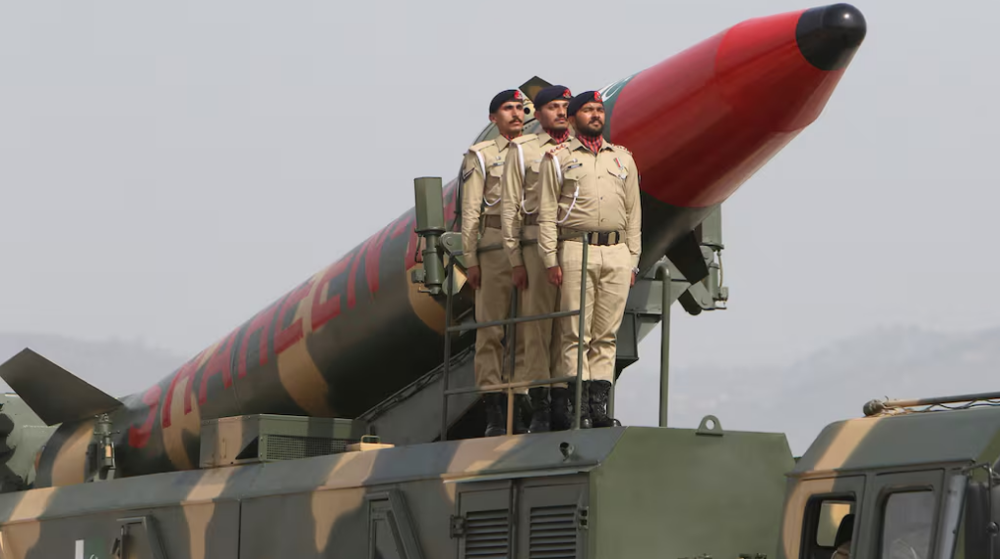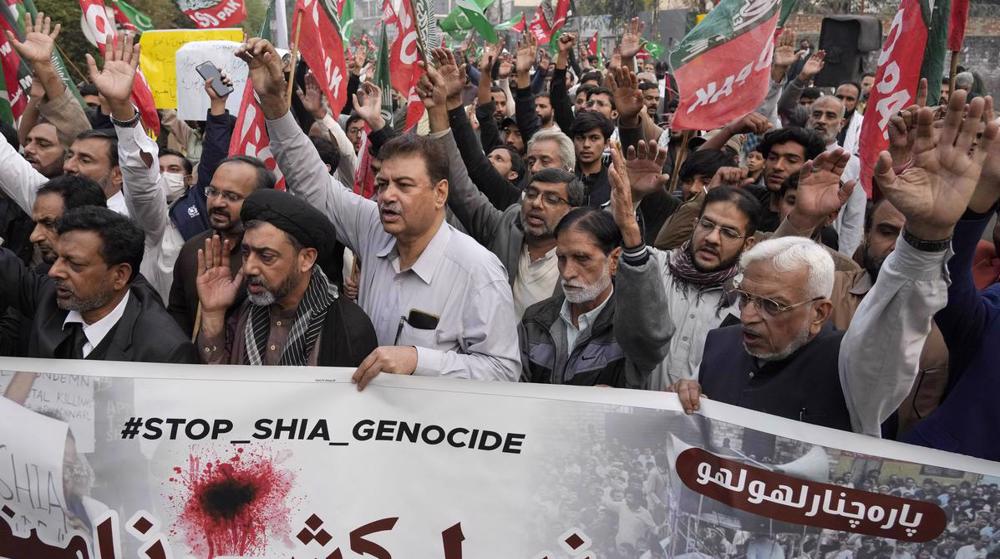Pakistani court indicts chief suspect behind 2008 Mumbai attacks
A Pakistani court has indicted Hafiz Muhammad Saeed, the alleged mastermind of the deadly 2008 attacks in the Indian port city of Mumbai, on terror financing charges, a government prosecutor and defense lawyer says.
Saeed and the four of his associates pleaded not guilty when a judge read charges against them in a courtroom in the eastern city of Lahore on Wednesday.
The court ordered the government's prosecution team to summon its witnesses to pursue the case, according to a statement by prosecutor Abdur Rauf Wattoo issued following the hearing.
“The counterterrorism department had lodged a case against Hafiz Muhammad Saeed for illegal funding,” Wattoo said.
Imran Gill, Saeed's lawyer, confirmed that his client had been indicted.
The next hearing in the case will be held on Thursday.
Saeed is the founder of the outlawed Lashkar-e-Taiba (LeT), a militant group blamed by India for the four-day Mumbai siege, in which 166 people were killed. The dead also included several foreigners.
Pakistan's counterterrorism police arrested Saeed in July, days before a visit to Washington by Prime Minister Imran Khan. He was taken into custody in Punjab province on July 17 while he was traveling from Lahore to the town of Gujranwala.
The indictment came ahead of a meeting of the Financial Action Task Force (FATF) early next year to decide whether to blacklist Pakistan for its failure to curb terror financing.
Saeed has been arrested and released several times in recent years.
In 2017, he was put under house arrest by Pakistani authorities and subsequently released after being cleared of charges against him, drawing strong criticism from the government in New Delhi.
LeT is known for attacking Indian security forces and government targets.
Saeed, however, has denied any involvement in the Mumbai attacks, saying he has no ties to militant groups.
Until the terror financing case, Saeed had for months lived freely in Pakistan, often addressing anti-India rallies for which he became popular.
‘All wars have rules. All of those rules have been broken’ by Israel
VIDEO | Report flags India’s violation of rights of Rohingya detainees
Turkey's foreign minister meets Syria's de facto leader in Damascus
'Next to impossible' to rescue patients from Gaza's Kamal Adwan Hospital: Director
VIDEO | Vietnam current prosperity
Report blames gasoil exports for shortage at Iranian power plants
VIDEO | Hind Rajab Foundation names Israeli war criminals vacationing after Gaza genocide
VIDEO | Australians rally for Gaza ahead of Christmas festivities











 This makes it easy to access the Press TV website
This makes it easy to access the Press TV website